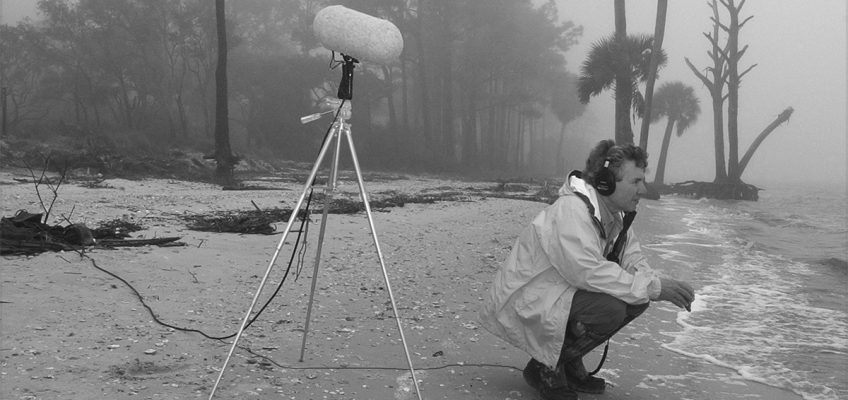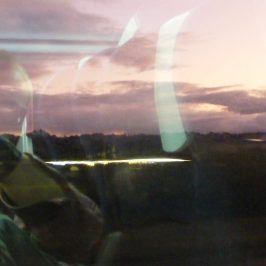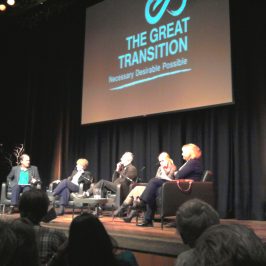I close my eyes and really listen. Some of the sounds I can readily identify, the drone of chicadas, birdsong, monkey howls and flies zooming past the microphone. Then there is another layer of, to me, unidentifiable forest sounds where different animal voices blend into a background tapestry of melody. The hammering I presume is a human made sound. On top of this soundscape a multitude of vocalisations bubble up and individual human voices quickly erupt into a chorus of undulating song, a kind of chanting with crests and troughs that move in stereo between my right and left earphone. Here I get lost for words and I also lose sense of time as my mind begins rocking slowly on the sound-waves that are rolling through my head. From time to time an individual voice will surge and do a little solo act before merging back into the aural current underneath. After a while there’s a sudden holler “HA!” and the whole choir drops dead and reveals the forest sounds that carried the whole performance.
I’ve listened to these sounds many times now. Each time is a different experience, I notice aspects that were previously hidden or they sound different in changed context. My inarticulateness persists and I feel a distinct lack of vocabulary or concepts to describe what I experience listening to this music. But something draws me to it and I find myself returning to these recordings again and again. The song of the Mbuti pygmies is a rare and enchanting soundscape which I’ve come to see (or hear) as a kind of aural time-pocket existing outside the bounds of space-time, leading nowhere in particular but evoking whole worlds of their own. It is also a disappearing soundscape, which I feel lucky to have stored on my hard-drive in mp3 format (you can also find a lot of interesting recordings on youtube). The Mbuti way of life is under serious threat, their territories in the Congo embroiled in civil unrest and spoiled by deforestation, mining and agriculture. In 2003 they appealed to the UN to try government and rebel forces for cannibalism against their people. And unfortunately, the situation is no different for many other forest peoples and the songs and soundscapes of the forest are rapidly disappearing across the globe.
It was through reading Bernie Krause‘s book “The Great Animal Orchestra” I came across these soundscapes. In August I called him up for a conversation about wild soundscapes, climate change and hearing a spreading silences across the natural world. You can read the interview on the Dark Mountain blog: Repairing the silent spring – A conversation with Bernie Krause. After speaking with Bernie and hearing his (aural) perspective on climate and environmental change, I’m beginning to think that learning to listen to our surroundings is one of the most powerful ways we can begin to re-integrate into more-than-human nature. Have a read and follow some of the trails to wild soundscapes and bioacoustic music. There’s a whole world waiting.





Ragnarok and the fate of the Danish soul
has to have constellating images to pull together all these tendencies to separation,...